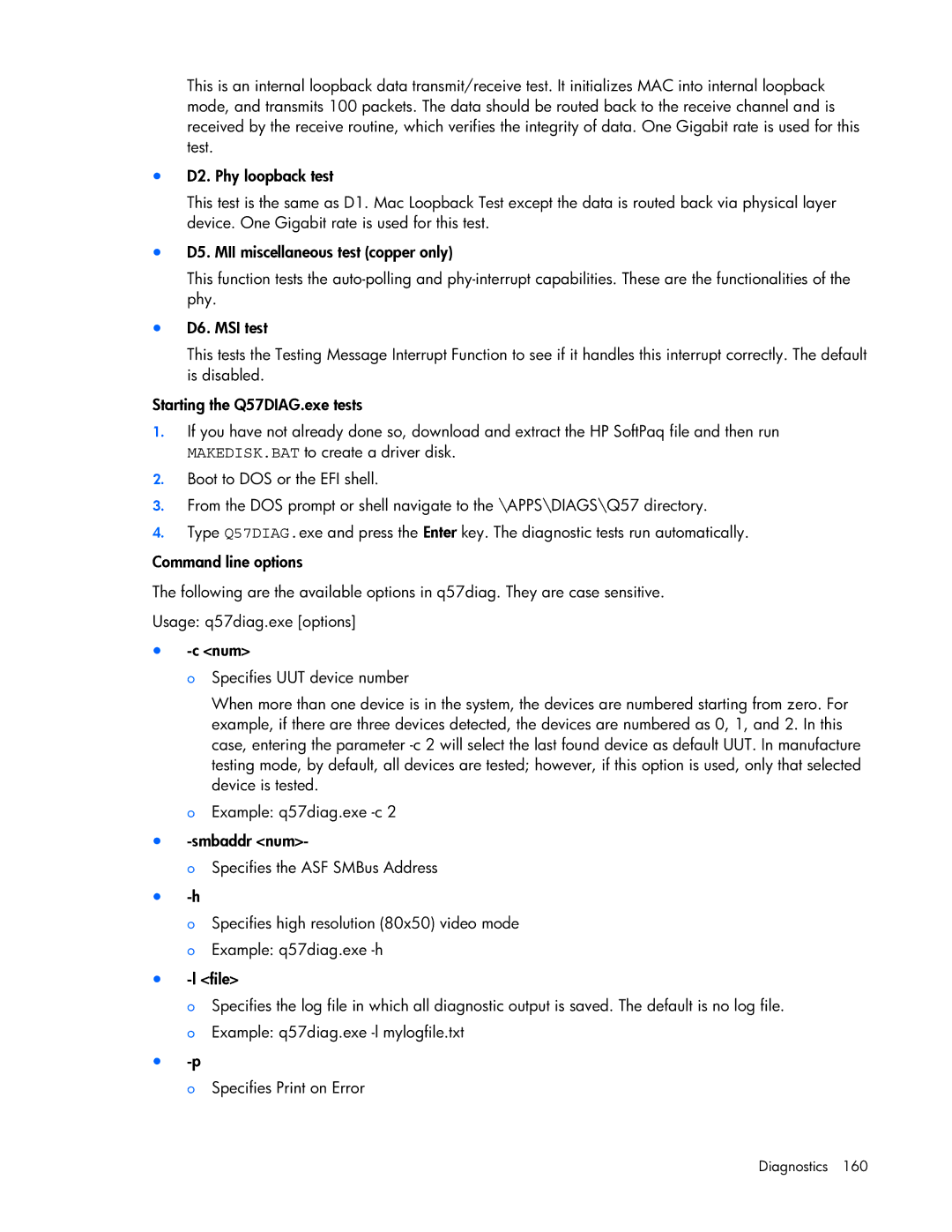This is an internal loopback data transmit/receive test. It initializes MAC into internal loopback mode, and transmits 100 packets. The data should be routed back to the receive channel and is received by the receive routine, which verifies the integrity of data. One Gigabit rate is used for this test.
•D2. Phy loopback test
This test is the same as D1. Mac Loopback Test except the data is routed back via physical layer device. One Gigabit rate is used for this test.
•D5. MII miscellaneous test (copper only)
This function tests the
•D6. MSI test
This tests the Testing Message Interrupt Function to see if it handles this interrupt correctly. The default is disabled.
Starting the Q57DIAG.exe tests
1.If you have not already done so, download and extract the HP SoftPaq file and then run MAKEDISK.BAT to create a driver disk.
2.Boot to DOS or the EFI shell.
3.From the DOS prompt or shell navigate to the \APPS\DIAGS\Q57 directory.
4.Type Q57DIAG.exe and press the Enter key. The diagnostic tests run automatically.
Command line options
The following are the available options in q57diag. They are case sensitive.
Usage: q57diag.exe [options]
•
o Specifies UUT device number
When more than one device is in the system, the devices are numbered starting from zero. For example, if there are three devices detected, the devices are numbered as 0, 1, and 2. In this case, entering the parameter
oExample: q57diag.exe
•
oSpecifies the ASF SMBus Address
•
oSpecifies high resolution (80x50) video mode
oExample: q57diag.exe
•
oSpecifies the log file in which all diagnostic output is saved. The default is no log file.
oExample: q57diag.exe
•
oSpecifies Print on Error
